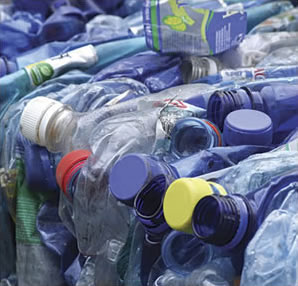Environmental Stewardship

Sustainability and NIEHS
Sustainability has come to the forefront in the wake of increased global understanding that economics, environmental health and human well-being are interconnected and interdependent. Our Institute has taken a leadership role in understanding and promoting sustainability.
Through our actions, NIEHS seeks to promote the health of our community and our planet while performing valuable research that contributes to a stronger, healthier relationship between humans and the environment.
With our 2011 NIEHS Sustainability Report (5MB) and NIEHS Sustainability Report (2009) (6MB) , we share some highlights of our work with you. We continue our efforts to strengthen the link between our science and our institutional focus on sustainability, helping to optimize the balance between human health, environmental quality, social well-being and economic strength.
We encourage you to consider your own role in promoting a more sustainable future.
General Goals and Guiding Principles
Efficient Use and Conservation of Energy, Water, and Other Resources
The NIEHS strives to reduce resource consumption by eliminating wasteful practices and promoting efficient use, as well as by evaluating and implementing feasible and practical conservation measures in existing buildings, renovations, and new construction.Compliance with Environmental Requirements
The NIEHS is committed to complying with all applicable federal, state, and local environmental laws and regulations. Where existing laws and regulations are not adequate to ensure protection of public health or the environment, we will establish and meet our own environmental quality standards.Environmentally Responsible Planning and Design Principles
The NIEHS, in conjunction with appropriate NIH offices, will assess the environmental implications of the development, construction, and operation of campus infrastructure, grounds, and buildings. To the extent practical, planning and designs for the maintenance and development of campus facilities will promote environmental sustainability through the efficient use and conservation of resources, landscaping, and grounds maintenance practices that are compatible with the local environment, and modes of transportation that minimize environmental impact.Healthy Built Environment
The NIEHS seeks to integrate the development and operation of campus infrastructure, grounds, and buildings with the natural environment in ways that promote and encourage public health, employee wellness, and quality of work life.Pollution Prevention
The NIEHS minimizes solid waste generation and the potential release of pollutants into the environment through source reduction, then through reuse and recycling, and finally through treatment and disposal.Minimize Hazardous Waste and Toxic Materials
The NIEHS actively strives to minimize the generation of hazardous wastes. The Institute maintains policies and processes for the safe and efficient use, tracking, storage, and disposal of hazardous and toxic materials.Commitment to Environmental Education and Awareness
The NIEHS recognizes the value of education and awareness of all employees and on-site contractors concerning the importance of environmental responsibility in all phases of Institute operations. Further, the NIEHS is committed to providing relevant and accurate information on the Institute’s environmental performance to the public.Environmentally Responsible Purchasing Decisions
The NIEHS recognizes that environmental responsibility can be exercised through the Institute’s purchasing choices. Accordingly, the NIEHS strives to obtain the best environmental value by balancing short and long-term costs, including consideration of the environmental, life cycle, and maintenance costs, of products and services.
Contacts
-
Bill Steinmetz
Environmental Compliance Officer
Environmental compliance; air, wastewater and storm water permits; petroleum spill response; Environmental Management System -
Tel (919) 541-4234
steinme1@niehs.nih.gov
-
Scott E. Merkle, CIH
Chief, Health and Safety Branch
Health, safety and environmental protection policies -
Tel (919) 541-7933
Fax (919) 541-1893
merkle@niehs.nih.gov
-
Trisha Castranio
Sustainability Coordinator
Sustainability and Green programs -
Tel (919) 541-0070
castran1@niehs.nih.gov

